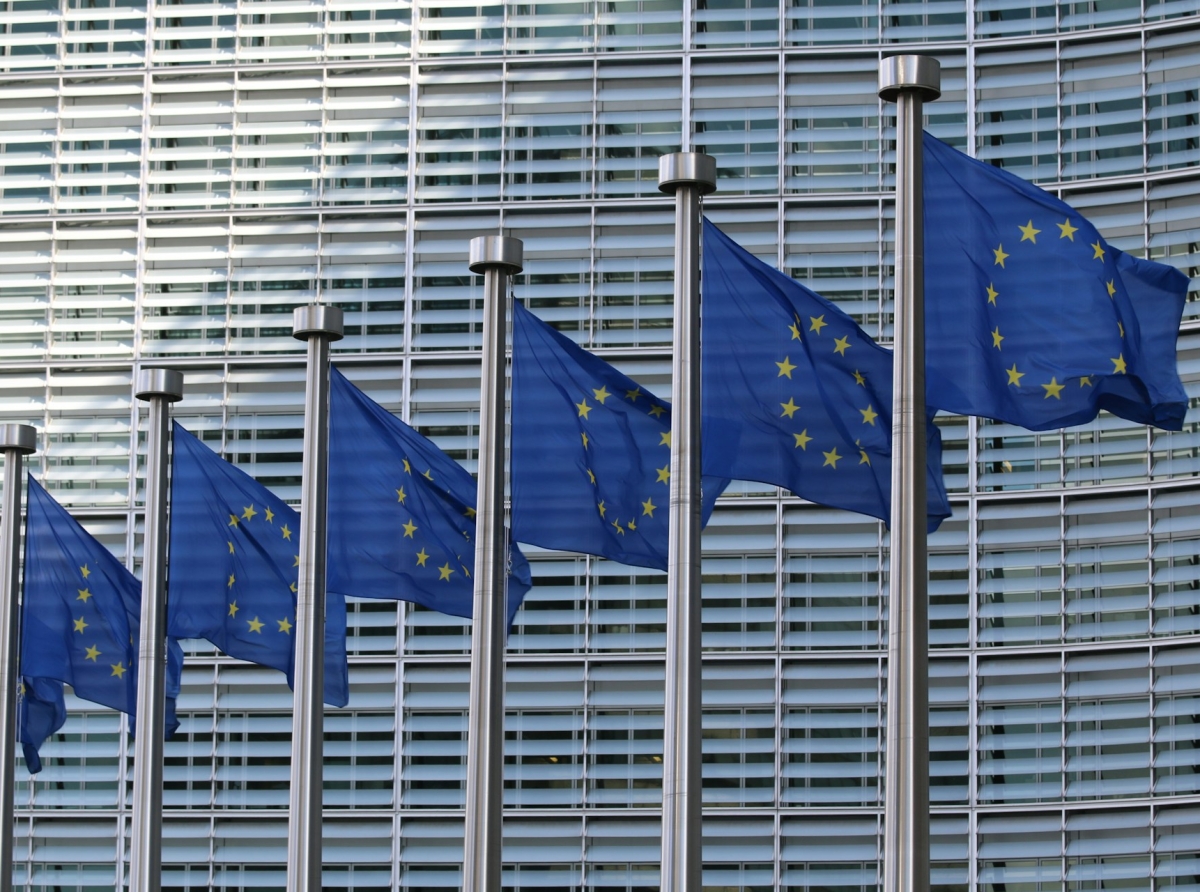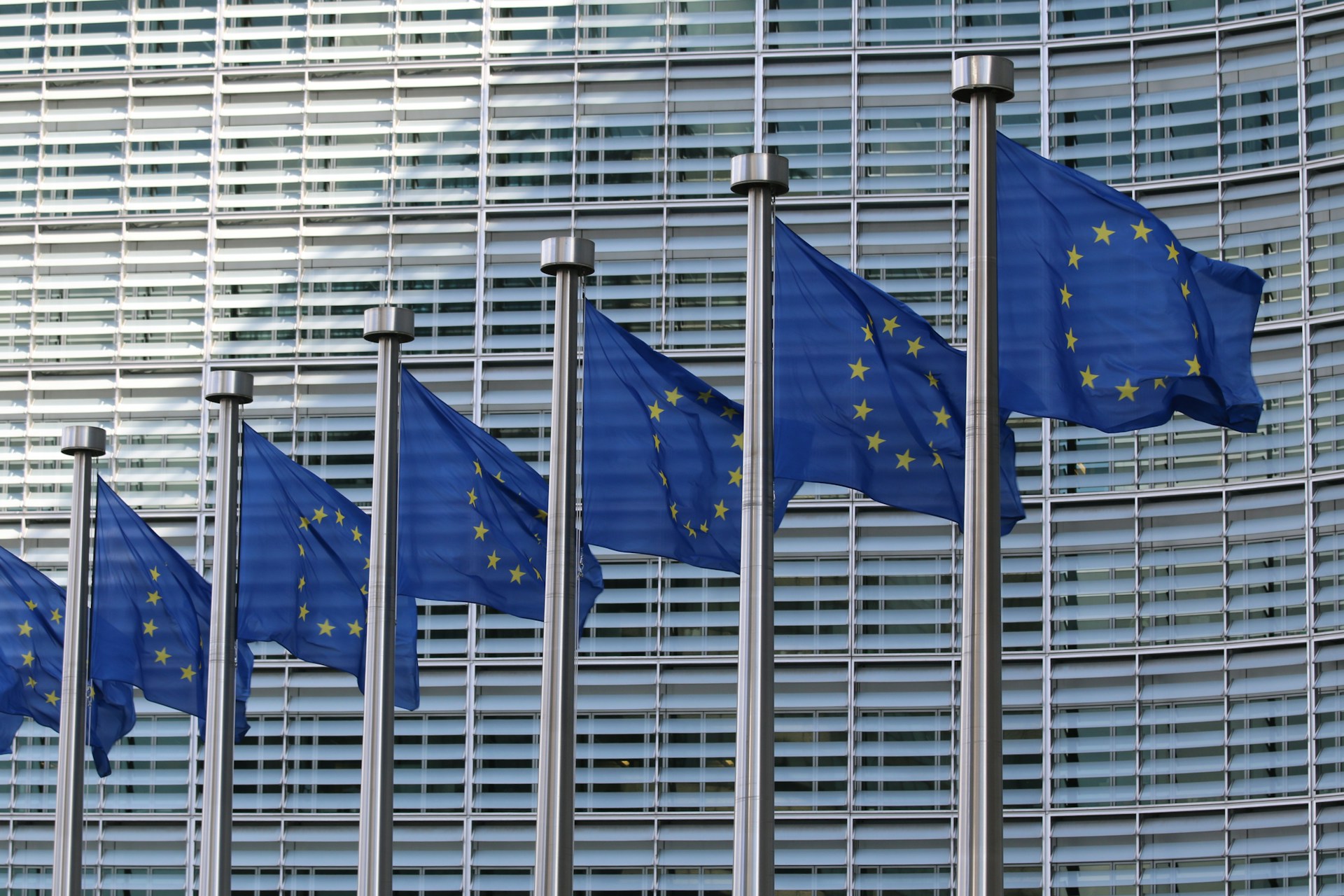EU Imposes Nearly $800 Million in Fines on Apple and Meta Amid Rising Trade Tensions with the US

EU Imposes Nearly $800 Million in Fines on Apple and Meta Amid Rising Trade Tensions with the US
The European Commission (EC), the executive body of the European Union, has levied fines totaling nearly €700 million (799.4 million) against techgiants Apple and Meta for violationsof the Digita lMarkets Act (DMA).
Apple was fined €500million (571 million), while Meta faced a penalty of €200 million ($228.4 million).
These sanctions come amid escalating trade tensions between the EU and the United States, raising concerns about potential retaliatory measures.
Apple was fined €500million (571 million), while Meta faced a penalty of €200 million ($228.4 million).
These sanctions come amid escalating trade tensions between the EU and the United States, raising concerns about potential retaliatory measures.

EU Imposes Nearly $800 Million in Fines on Apple and Meta Amid Rising Trade Tensions with the US
Apple’s Violations and Response
According to EU regulators, Apple failed to comply with its "anti-steering" obligations under the DMA. The legislation mandates that Apple must allow developers to inform users about alternative purchasing options outside the App Store without imposing restrictive technical or commercial barriers. Regulators argued that Apple's current practices hinder fair competition by limiting developers' ability to direct customers to cheaper alternatives.In response, the EC ordered Apple to remove these restrictions and refrain from similar actions in the future. However, Apple has pushed back, announcing plans to appeal the decision. In a statement, the company accused the European Commission of unfairly targeting it, arguing that the rulings undermine user privacy and security while forcing Apple to share proprietary technologies without compensation.
"Today’s announcements are yet another example of how the European Commission unfairly targets Apple," the company said. "These decisions harm our users’ privacy and safety, degrade our products, and compel us to give away our innovations for free."
Apple's defiance highlights the growing friction between global tech companies and regulators striving to enforce stricter oversight over digital markets.
Meta’s Breach of Data Consent Rules
Meta, the parent company of Facebook and Instagram, was penalized for unlawfully pressuring users into consenting to data-sharing practices or paying for ad-free versions of its services. This violation arose after Meta introduced subscription-based offerings for Facebook and Instagram in November 2023, which allowed users to avoid ads if they paid a fee.The EC found that Meta’s approach violated GDPR principles by coercively obtaining user consent for data processing. Instead of offering genuine choice, Meta effectively forced users to either surrender their personal data or pay for premium subscriptions. Regulators deemed this practice anticompetitive and detrimental to consumer rights.
Joel Kaplan, Meta’s Global Affairs Chief, criticized the ruling, accusing the EC of unfairly disadvantaging American firms while giving Chinese and European competitors more lenient treatment. "This isn’t just about the fine; the Commission is essentially imposing a multi-billion-dollar tariff on Meta by forcing us to alter our business model," Kaplan stated. He warned that restricting personalized advertising would harm not only Meta but also European businesses reliant on targeted ads.
Despite the criticism, Meta has taken steps to comply with EU regulations by introducing a less personalized ad model that relies on fewer personal data points. The EC is currently evaluating this revised framework and has requested evidence demonstrating its real-world impact. Meanwhile, Meta has been instructed to fully implement these changes within 60 days—or face further penalties.
Although Trump later reduced the tariffs to 10% for certain trading partners—including the EU—to facilitate negotiations, the underlying conflict remains unresolved. Critics argue that the fines imposed on Apple and Meta could exacerbate these tensions, potentially leading to additional economic retaliation.
However, the crackdown has sparked debate about the balance between regulation and innovation. While proponents applaud the EU’s efforts to hold tech giants accountable, critics warn that overly stringent rules could stifle technological progress and disadvantage Western companies relative to their Asian counterparts.
For instance, Meta contends that limiting personalized advertising will disproportionately affect small businesses and content creators who rely heavily on targeted marketing. Similarly, Apple argues that the EC’s demands compromise the integrity of its ecosystem, potentially exposing users to cybersecurity risks.
Trade Tensions Between the EU and the US
These regulatory actions occur against the backdrop of increasing trade tensions between the EU and the United States. Under President Donald Trump, the US administration has voiced strong objections to what it perceives as excessive regulation of American tech companies by Europe. Earlier this month, Trump imposed a 20% tariff on select EU imports as part of his broader strategy to counter what he calls "foreign extortion" through digital service taxes, fines, and other measures targeting US firms.Although Trump later reduced the tariffs to 10% for certain trading partners—including the EU—to facilitate negotiations, the underlying conflict remains unresolved. Critics argue that the fines imposed on Apple and Meta could exacerbate these tensions, potentially leading to additional economic retaliation.
Broader Implications for Tech Regulation
The EU’s enforcement of the DMA represents a significant step toward reining in the dominance of big tech companies. By compelling Apple and Meta to adopt more transparent and equitable practices, the EC aims to foster innovation, protect consumer rights, and ensure fair competition across digital platforms.However, the crackdown has sparked debate about the balance between regulation and innovation. While proponents applaud the EU’s efforts to hold tech giants accountable, critics warn that overly stringent rules could stifle technological progress and disadvantage Western companies relative to their Asian counterparts.
For instance, Meta contends that limiting personalized advertising will disproportionately affect small businesses and content creators who rely heavily on targeted marketing. Similarly, Apple argues that the EC’s demands compromise the integrity of its ecosystem, potentially exposing users to cybersecurity risks.
Looking Ahead: A Delicate Balancing Act
As the EU continues to refine its regulatory framework, both Apple and Meta face critical decisions. Will they adapt to meet European standards, even at the cost of restructuring core aspects of their business models? Or will they resist, risking further legal battles and reputational damage?Meanwhile, the geopolitical implications cannot be ignored. With the US and EU locked in a delicate dance over trade policies, the outcome of this dispute could shape future relations between the two blocs. If unresolved, it may escalate into a full-blown trade war, undermining decades of transatlantic cooperation.
Ultimately, the EU’s stance reflects a broader trend toward asserting sovereignty in the digital age. As nations grapple with the challenges posed by globalization and technological advancement, finding common ground will require careful diplomacy—and perhaps a willingness to compromise on both sides.
Ultimately, the EU’s stance reflects a broader trend toward asserting sovereignty in the digital age. As nations grapple with the challenges posed by globalization and technological advancement, finding common ground will require careful diplomacy—and perhaps a willingness to compromise on both sides.









Report
My comments